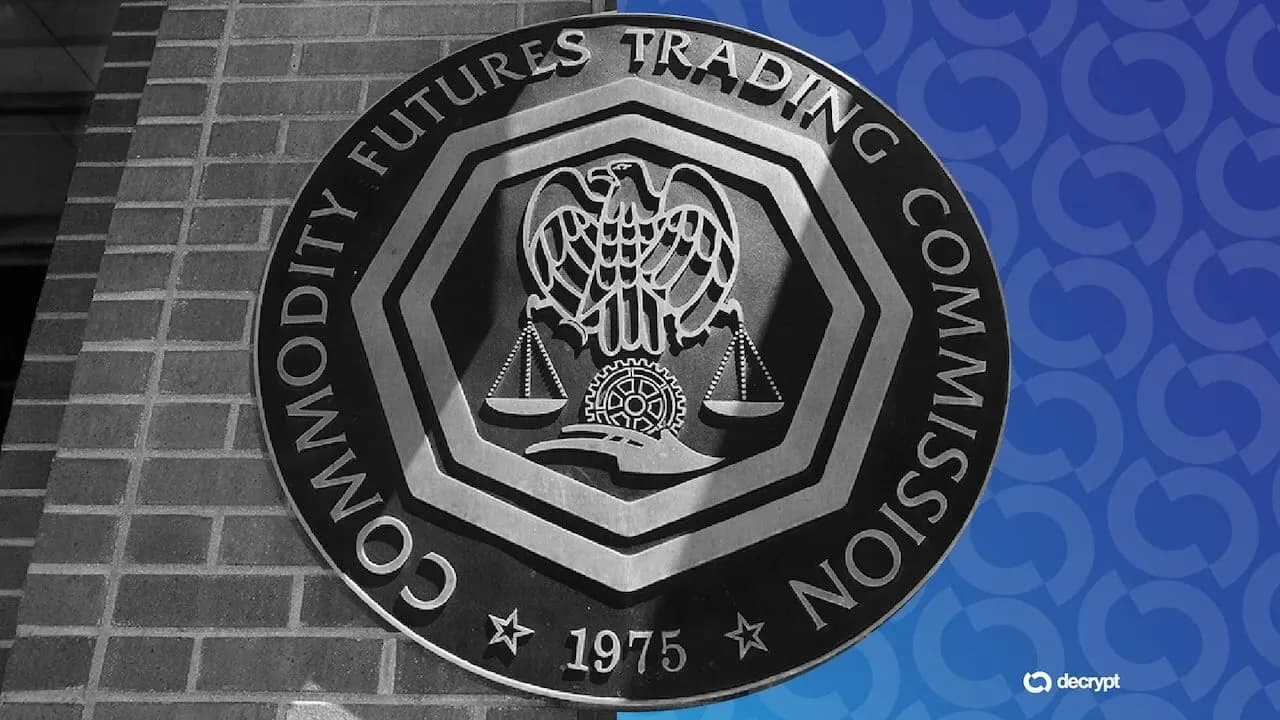SEC, CFTC-Registered Exchanges Receive Blessing to Facilitate Spot Crypto Trading

News Summary
The U.S. Securities and Exchange Commission (SEC) and the Commodity Futures Trading Commission (CFTC) issued a joint statement, allowing exchanges registered with their respective agencies to facilitate trading of certain spot crypto products. The statement specifically covers crypto products focused on “leverage, margin, and financed spot retail commodity transactions.” This move responds to an earlier report from the President's Working Group on Digital Asset Markets, which called for regulatory clarity on such assets. Both agencies emphasized that registered exchanges are not prohibited by law from facilitating trading of these spot crypto asset products and invited market participants to engage with SEC or CFTC staff. This statement is seen as the latest evidence of a rapidly improving regulatory environment for digital assets under the Trump administration. Matthew Sigel, Head of Digital Assets Research at VanEck, anticipates that major equity exchanges like NYSE and Nasdaq will soon offer spot trading for Bitcoin, Ethereum, and other cryptocurrencies. However, former SEC chief of staff Amanda Fischer expressed concern about the statement's vagueness and the potential lack of legal authority for self-regulatory organizations (SROs) on securities exchanges to regulate spot commodity trading.
Background
This joint statement is a direct response to a report titled “Strengthening American Leadership in Digital Financial Technology,” issued earlier in 2025 by the President's Working Group on Digital Asset Markets. That report called for the SEC and CFTC to provide much-needed “regulatory clarity” on crypto products such as those involving leverage, margin, and financed spot retail commodity transactions. Within eight months of President Trump's re-election in November 2024 and subsequent taking office in 2025, his administration has undertaken a series of pro-crypto actions, including dropping multiple lawsuits against prominent crypto organizations and signaling a clear willingness to collaborate with an industry that supported Trump's 2024 campaign. This context underscores the current administration's distinct policy inclination toward mainstreaming digital assets.
In-Depth AI Insights
What are the deeper strategic motivations behind the Trump administration's rapid acceleration of crypto regulatory clarity, beyond simply 'supporting the industry'? - Political Consolidation and Economic Nationalism: Appeasing the crypto-savvy voter base that supported Trump in the 2024 election and advancing an 'America First' economic agenda by positioning the US as a hub for digital asset innovation. This aims to prevent capital and talent flight to other crypto-friendly jurisdictions, ensuring US dominance in the rapidly evolving digital economy. - Innovation Beyond Traditional Finance: Potentially to foster an alternative financial ecosystem that could, in some cases, circumvent existing financial institutions and the dollar's hegemony. By backing decentralized financial instruments, the administration may be laying groundwork for future alternatives that either compete with or augment traditional finance, increasing the resilience and diversity of the US financial system. - Geostrategic Leverage: Promoting a regulated crypto market can enhance US influence in global digital finance, particularly when dealing with rivals who might use digital assets to circumvent sanctions or challenge the dollar's reserve status. By shaping its development, the US can better control the global digital asset narrative and standards as a strategic tool. What are the implications for major US equity exchanges (e.g., NYSE, Nasdaq) and the broader financial markets if spot crypto trading is potentially listed on these platforms? - Convergence of TradFi and Crypto: The prospect of spot crypto products on these platforms signifies a deeper integration of cryptocurrencies into traditional financial infrastructure. This will not only increase liquidity and institutional participation in crypto but also push traditional market operators to develop new services and products catering to crypto investors. - Regulatory Arbitrage and Market Fragmentation: Despite the regulatory 'blessing,' the vagueness regarding jurisdictional authority over spot commodity trading, as highlighted by Amanda Fischer, could lead to regulatory arbitrage and market fragmentation across different platforms. This might attract trading volume in the short term but could increase regulatory risk and investor protection challenges in the long run. - Transmission of Traditional Market Risks: Introducing highly volatile cryptocurrencies to traditional equity exchanges could mean that the inherent risks of the crypto market are transmitted to the broader financial system. This might necessitate significant adjustments in market surveillance, risk management, and clearing mechanisms to prevent potential systemic shocks. What is the true significance of regulators inviting market participants to engage, and does it foreshadow further regulatory actions? - Collaborative Control in Policy Formation: The invitation for engagement, while ostensibly fostering collaboration, also serves as a mechanism for regulators to stay abreast of industry developments and fine-tune policies before formal implementation. This allows them to absorb industry feedback while maintaining control over the direction of the industry's evolution, avoiding the creation of unworkable or market-averse regulations. - Risk Mitigation and Shared Responsibility: By opening lines of communication, regulators can identify potential systemic risks and encourage market participants to share the responsibility of addressing them. This helps in building a more resilient market structure while diffusing the pressure on regulators to solely bear the burden of all risk oversight. - Information Gathering for Future Frameworks: This ongoing dialogue is crucial for building a knowledge base for future, more comprehensive, and specific regulatory frameworks. Given Fischer's concerns, regulators are likely gathering data and perspectives to address existing gaps and eventually formulate more binding rules, rather than solely relying on the current 'not prohibited' statement.